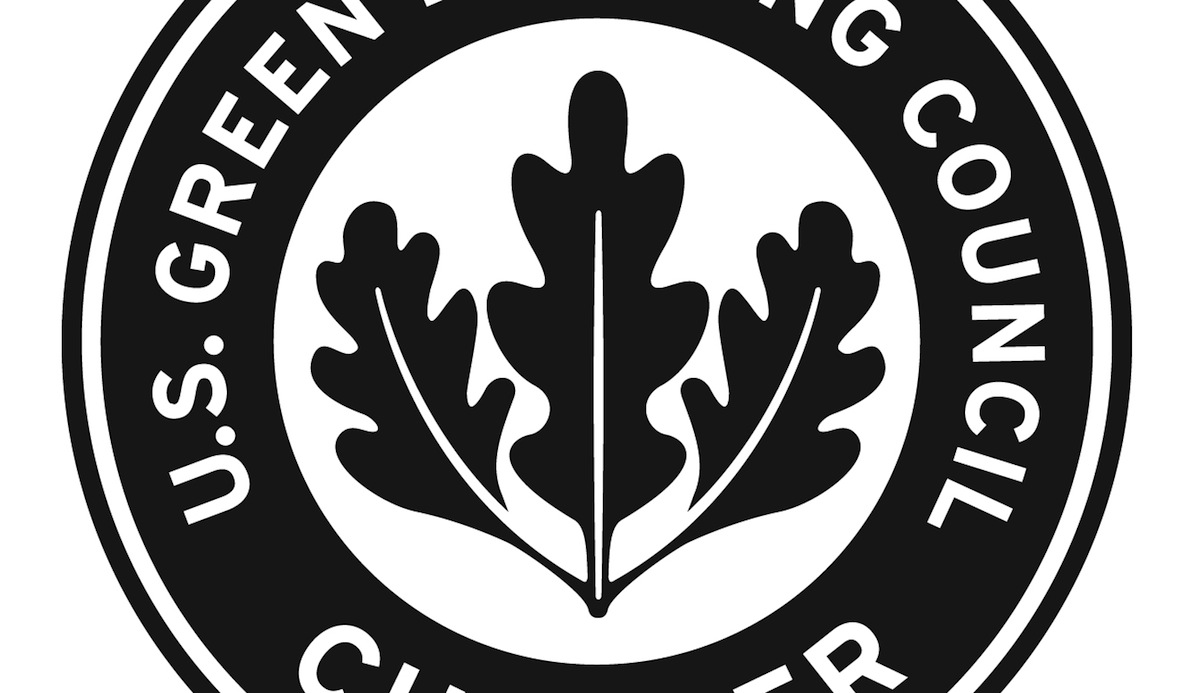Rick Fedrizzi, who has been the face of the U.S. Green Building Council (USGBC) since he co-founded it in 1993, has informed the Council that he will be stepping down as its CEO, a position he’s held since 2003, at the end of 2016.
The Council’s Board has set up a search committee to identify candidates for the CEO position, to ensure a smooth transition of leadership by January 2017.
“As an industry, we’ve grown and prospered because of a powerful idea that ultimately sparked a movement,” said Fiona Cousins, chair-elect of the USGBC Board of Directors. “That movement has been ably led by Rick Fedrizzi for more than two decades, and it’s that success we’ll continue to build on in the future.”
Fedrizzi will be leaving an organization that has grown to 76 chapters. The Washington, D.C.-based USGBC employs 260 people, and last year reported $74.1 million in revenue.
Fedrizzi—who was USGBC’s volunteer chairman the first six years of its existence—states that the most gratifying aspect of his job has been “seeing the impact of LEED and the greater USGBC community have made on the global green building industry.”
Since launching its Leadership in Energy & Environmental Design (LEED) green certification program in 2000, more than 55,000 commercial projects spanning 10.1 billion sf, and more than 154,000 residential units around the world participate in LEED, with 1.7 million square feet of building space earning LEED certification every day. Nearly 200,000 LEED professional credential holders are engaged in advancing this global movement.
Last year, the United Nations honored USGBC with its Champions of the Earth award.
While he didn’t provide specifics about his future plans, the 60-year-old Fedrizzi says he would continue to work with the green building movement, and companies that can use his knowledge of green building practices, as a volunteer “in any way I can.”
Related Stories
Green | Jul 8, 2024
Global green building alliance releases guide for $35 trillion investment to achieve net zero, meet global energy transition goals
The international alliance of UK-based Building Research Establishment (BRE), the Green Building Council of Australia (GBCA), the Singapore Green Building Council (SGBC), the U.S. Green Building Council (USGBC), and the Alliance HQE-GBC France developed the guide, Financing Transformation: A Guide to Green Building for Green Bonds and Green Loans, to strengthen global cooperation between the finance and real estate sectors.
Sustainability | Jul 1, 2024
Amazon, JPMorgan Chase among companies collaborating with ILFI to advance carbon verification
Four companies (Amazon, JPMorgan Chase, JLL, and Prologis) are working with the International Living Future Institute to support development of new versions of Zero Carbon Certification.
Sustainability | Jun 24, 2024
CBRE to use Climate X platform to help clients calculate climate-related risks
CBRE will use risk analysis platform Climate X to provide climate risk data to commercial renters and property owners. The agreement will help clients calculate climate-related risks and return on investments for retrofits or acquisitions that can boost resiliency.
Building Technology | Jun 18, 2024
Could ‘smart’ building facades heat and cool buildings?
A promising research project looks at the possibilities for thermoelectric systems to thermally condition buildings, writes Mahsa Farid Mohajer, Sustainable Building Analyst with Stantec.
University Buildings | Jun 18, 2024
UC Riverside’s new School of Medicine building supports team-based learning, showcases passive design strategies
The University of California, Riverside, School of Medicine has opened the 94,576-sf, five-floor Education Building II (EDII). Created by the design-build team of CO Architects and Hensel Phelps, the medical school’s new home supports team-based student learning, offers social spaces, and provides departmental offices for faculty and staff.
Codes and Standards | Jun 17, 2024
Federal government releases national definition of a zero emissions building
The U.S. Department of Energy has released a new national definition of a zero emissions building. The definition is intended to provide industry guidance to support new and existing commercial and residential buildings to move towards zero emissions across the entire building sector, DOE says.
Green | Jun 11, 2024
Tool helps construction and renovation projects with CalGreen compliance
One Click LCA recently launched a new software tool to help building teams comply with Part 11, Title 24, of the California Code of Regulations—CALGreen. The regulation is the nation’s first state-mandated green building code to include embodied carbon emission control as a mandatory component, effective from July 1, 2024.
Mass Timber | May 31, 2024
Mass timber a big part of Western Washington University’s net-zero ambitions
Western Washington University, in Bellingham, Wash., 90 miles from Seattle, is in the process of expanding its ABET-accredited programs for electrical engineering, computer engineering and science, and energy science. As part of that process, the university is building Kaiser Borsari Hall, the 54,000-sf new home for those academic disciplines that will include teaching labs, research labs, classrooms, collaborative spaces, and administrative offices.
MFPRO+ New Projects | May 29, 2024
Two San Francisco multifamily high rises install onsite water recycling systems
Two high-rise apartment buildings in San Francisco have installed onsite water recycling systems that will reuse a total of 3.9 million gallons of wastewater annually. The recycled water will be used for toilet flushing, cooling towers, and landscape irrigation to significantly reduce water usage in both buildings.
MFPRO+ News | May 28, 2024
ENERGY STAR NextGen Certification for New Homes and Apartments launched
The U.S. Environmental Protection Agency recently launched ENERGY STAR NextGen Certified Homes and Apartments, a voluntary certification program for new residential buildings. The program will increase national energy and emissions savings by accelerating the building industry’s adoption of advanced, energy-efficient technologies, according to an EPA news release.

















